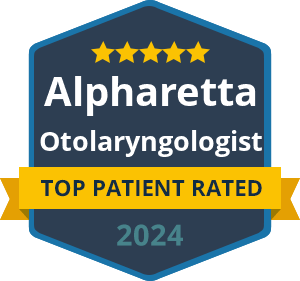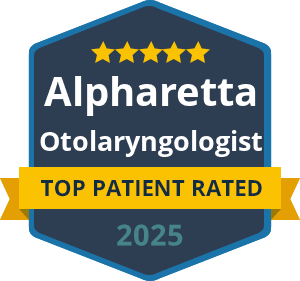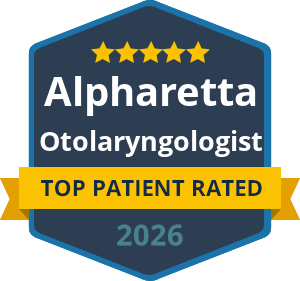Turbinate Hypertrophy
The turbinates in the nasal passages are important for adding moisture and warmth to the air you breathe. These shelf-like areas of tissue are located over the turbinate bones on the outside of the nasal passages. If these growths become enlarged, it can cause nasal obstruction and other problems. This condition is called turbinate hypertrophy, which we can diagnose and treat at Julie Zweig, MD Integrative Sleep & ENT in Alpharetta, GA.
Causes and Symptoms of Turbinate Hypertrophy
Turbinate bones and tissue create three shelf-like structures on the outside of the nasal passages. These structures help cleanse, moisturize and warm the air and direct it through the nose before it goes into the lungs. When you have allergies, sinus infections or a cold, your turbinates can become inflamed and swollen. This is acute turbinate hypertrophy, a temporary condition. If you have ongoing triggers that cause swelling or enlargement of the turbinates, this is called chronic turbinate hypertrophy.
Large turbinates can interfere with breathing and cause other problems. Symptoms of turbinate hypertrophy include:
- Restricted nasal breathing
- Snoring
- Dry mouth (from breathing through the mouth)
- Facial pain and pressure
- Runny nose
Acute turbinate hypertrophy can go away on its own or with treatment of the trigger, such as allergies or a cold. Chronically enlarged turbinates can be caused by allergic rhinitis and chronic sinus infections. Hormone replacement or oral contraceptives can also impact the size of turbinates. For chronic turbinate hypertrophy, you may need treatment for turbinate reduction.
When conservative treatments like medications and lifestyle changes to control the triggers of turbinate inflammation are ineffective, surgical reduction may be recommended. There are various surgical procedures that can be used to permanently reduce the size of the bones or tissue for improved breathing.
If you have symptoms of turbinate hypertrophy, contact our team at Julie Zweig, MD Integrative Sleep & ENT. We can schedule a nasal exam with our ENT specialist to determine the best treatment plan for turbinate reduction. Call our medical center in the Dunwoody, Roswell and Alpharetta, GA, area to book your appointment for a turbinate hypertrophy evaluation.





